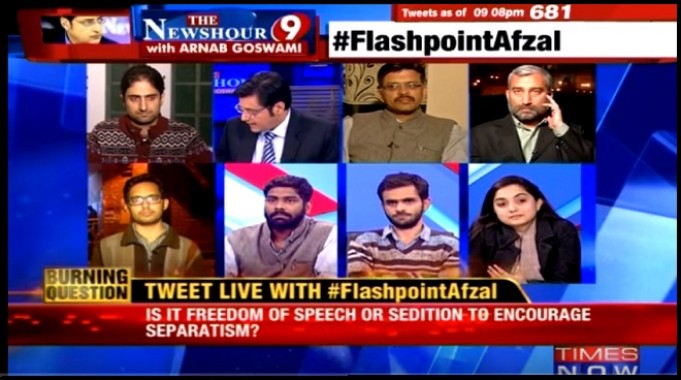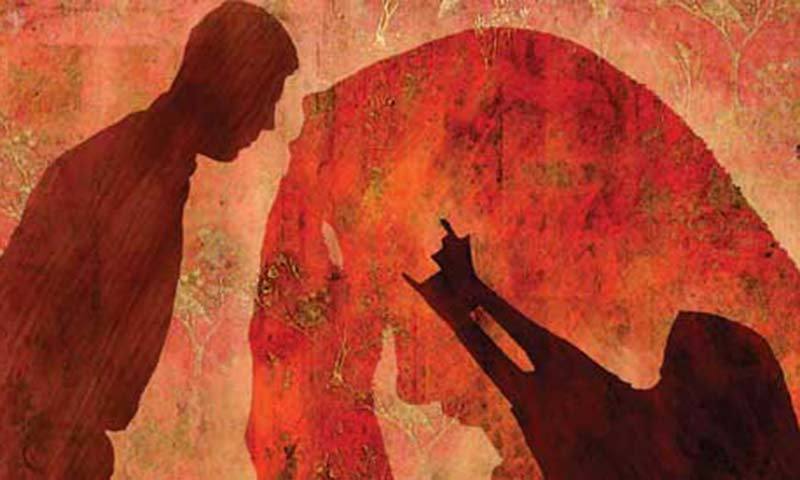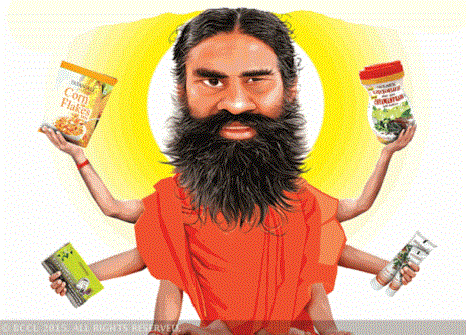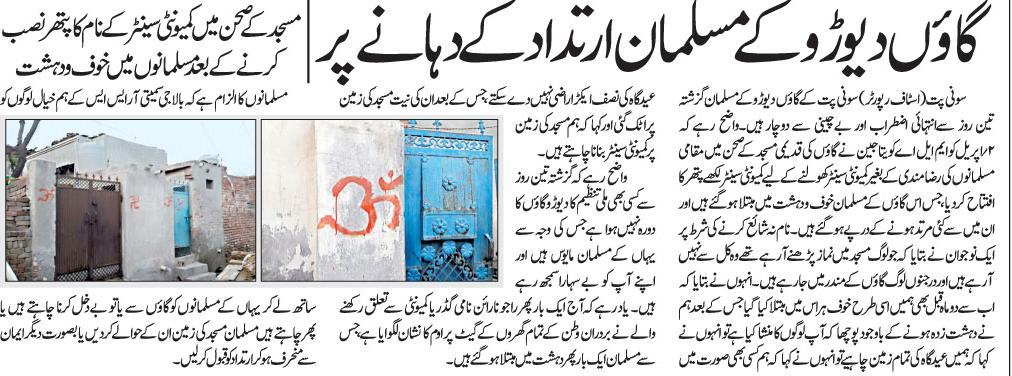
Undeterred and unabashed, premier institutes of historical learning and research continue with their sharp and unconstitutional saffron thrust. The foundation day lecture at the Indian Council for Historical Research (ICHR) is a prestigious event delivered by historians of international repute. This March 29, however, the ICHR under YS Rao, invited historian Satish Chandra Mittal to address historians on its foundation day this year. Last year, the ICHR invited American David Frawley, an expert in yoga, ayurveda and vedic astrology, to deliver the keynote address, sparking criticism from historians.
Meanwhile, in an aside, Indian media has reported that ICHR chairperson YS Rao, who had in a fit of pique –for not being paid an honorarium of Rs. 1.5 lakhs per month –threatened to resign, continues in his post four months after the threatened resignation.
Mittal is precious to this regime. He is national president of the All India Itihas Sankalan Yojana, affiliated to the Rashtriya Swayamsevak Sangh (RSS). He is also one of the six petitioners who demanded a ban on Wendy Doniger’s book The Hindus: An Alternative History. It is the criminal and civil suits forced the publishers Penguin to pulp the book even before any court adjudicated on the issue. There is also a very personal connection: Mr. Batra’s son is married to Mr. Mittal’s daughter.
The lecture by Mittal, a retired professor of Kurukshetra University, on March 29, was on a re-interpretation of the national movement. Sabrangindia will bring to its readers a critique of this effort. Meanwhile in the interests of contextualisation and research, we reproduce here a research paper by historian Arjun Dev published in SAHMAT’s collection Plagiarised and Communalised published in 2003.
It deals specifically with the textbooks authored by historian Satish Mittal, now a pet historian of the Modi regime.
Historical Illiteracy or Invention
This textbook which carries April 2003 as its date of publication is one of the two textbooks brought out by NCERT and prescribed by CBSE for Class XII. It covers the history of India from the late eighteenth century to the ‘Making of the Indian Constitution and Liberation of Goa and Pondicherry’. (The second book deals with contemporary world history as defined by the new syllabus prepared by NCERT.)
As the senior/higher secondary examination in the CBSE pattern is based exclusively on the Class XII syllabus and these two books are the only books authorized for the Class XII history syllabus, they would be essential reading for all history students at this stage, for most of them these would be the only books for the study of modern Indian history and contemporary world history.
All examination questions would be based on them and so would be all the expected ‘correct’ answers. For those who cease their formal education at the end of Class XII, the study of these books would mark the end of their formal education in history; for others who decide to pursue higher education and choose to continue their formal study of history at an advanced level, the knowledge and understanding of history acquired from the study of these books would influence, if not determine, their ability and competence to do so.
The book Modern India is stated to have been written by Satish Chandra Mittal, a Retired Professor of History, Kurukshetra University. The participants in the review workshop included a Retired Professor of History from BHU and two in-service Professors of History from Meerut and Kurukshetra, two History Lecturers, and seven school teachers (including one retired teacher), besides three newly-recruited staff members in history in the NCERT.
No staff member who has worked in the area of history for more than two years in the NCERT took part in the review workshop. (The only exception to this is a teacher from NCERT’s school in Bhopal. This teacher has been present in every history textbook review workshop during the past two years. Those from the NCERT’s history faculty who have not been involved in any review workshop include a professor of history, two readers, four lecturers and several teachers.
The cut-off date for NCERT’s history faculty eligible to participants in textbook review workshops seems to be their entry into NCERT after 2000, the only exception being the teacher from Bhopal. The reason for this seems to be to ensure the ideological purity of the new generation of NCERT’s history textbooks.)
Interestingly, the participants in the workshop to review this history textbook also included a Reader in English from Meerut University. His participation, it is presumed, was meant to ensure that the language of the English version of the book was correct and intelligible. The English Reader’s involvement in this enterprise seems to have served little purpose. The participation by professors and teachers of history in the work of review has made no difference insofar as its quality in terms of elementary standards of accuracy and presentation is concerned.

Why Satish Mittal ?
What led the NCERT to select Professor Mittal to write this book? Considering the utter disregard that the author has shown in the matter of elementary facts of history, the reason can not be exclusively Professor Mittal’s academic credentials. (The author of anther new text on the history of modern India – for Class IX – is the official spokesman of BJP in J&K, besides being presently a Professor of History in Jammu University; he wrote the book when, for one year, he was a Professor of History at the NCERT. The book had so many gross errors that within two months of its publication, the NCERT had to bring out a revised version.)
Professor Mittal published a pamphlet two years ago in which he presented a critical analysis of the Indian history curricula, including NCERT’s history textbooks, then in use. (Bhartiya Itihas ke Prachalit Pathyakramon ki Ek Vishleshanatmak Sameeksha) The pamphlet abounded in plain falsehoods about the NCERT’s history textbooks then in print.
More importantly the ‘critical analysis’ presented a list of seriously objectionable elements in these books, elements which, according to Professor Mittal, reflected a combination of Macaulay’s and Marx’s ideas. These objectionable ideas included ‘presenting Hindu-Muslim unity in an exaggerated manner’ (Hindu-Muslim ekta to badhachadha kar dikhana) and ‘emphasis on the aspect of composite culture’ (mili juli Sanskriti ka paksh ubharna). The author expressed his wish that Indian history curriculum should be such as excludes ‘appeasement of Muslims and advocacy of a composite culture’ (is mein Muslim tushtikaran ya mili juli Sanskriti ka aalap na ho). Professor Mittal’s hostility to notions of Hindu-Muslim unity and the concept of a composite culture would surely have added to his eligibility to write a textbook on the history of modern India.
Mittal’s Preface to the NCERT Textbook
The author, in his Preface, writes, “In this textbook, various historical events and chronologies have been examined on the basis of facts in the Indian and international perspective”. What has led him to examine chronologies is not clear. Fortunately, in the text itself he has done no such thing. The chronology of major events being fairly well- established, he has, in fact, refrained from altering it.
So the Third Battle of Panipat continues to take place in this text in 1761 and India continues to attain independence in 1947. He has meddled with the sequence of events at some places in his presentation but the dates, with some exceptions, are the ones that students of history are generally familiar with.
This is not a small achievement considering the enormous number of factual mistakes in his examination of historical events supposedly ‘on the basis of facts.’ There is little of south India in his ‘Indian perspective’ in the treatment of the freedom movement (except for his discovery that almost every major town and city in south India was a chief centre of the Revolt of 1857. The number of these ‘chief centres’ exceeded those in northern, eastern and central India.)
Even less is the there any evidence of any ‘international perspective’. For example, there is no a word about the international perspective of the Indian national movement. Professor Mittal has further stated, “Various castes, classes and communities participated in our freedom struggle and sacrificed their life for the sake of their country’s freedom”. (Italics added)
The text does refer to many individuals who sacrificed their life but, fortunately, no such sacrifice of life has been brought to light for ‘castes, classes and communities’ which have continued to survive. Given the emphasis on values laid in the NCERT’s new curriculum, it is perhaps incumbent on every author writes, “It is hoped that this brief analysis of past events, new problems of the present and the future perspectives would certainly be helpful in understanding the social, economic, moral and spiritual values of Indian life from the historical point of view”. The text is, mercifully, completely silent on ‘new problems of the present and the future perspectives’ and there is little, again mercifully, that would be helpful in understanding the ‘social, economic, moral and spiritual values of Indian life’.
The NCERT Director, in his Foreword to the book, is less ambiguous and more forthright than the author. According to him, “The whole character of history is affected by new techniques, inventions and outlook”. This is certainly true for much of this book; it has made numerous historical inventions for which various techniques have been adopted, chiefly disregard of facts and their distorted presentation, and has employed ‘new outlook’ to promote a narrow ideological agenda. It eminently conforms to the standard set by the NCERT for producing sub-standard history textbooks.
It is not possible to point out every major distortion and factual inaccuracy in which this book abounds – there is very little that is right with the book.The liberties taken with English language have made the text at numerous placed ludicrous. If it is a translation much of it reads like one – the translator seems to have little familiarity with history and with English usage. Given below is a sample, chapterwise, of the enormous number of distortions and errors.
Chapter 1: India in the Late Eighteenth Century
This chapter focuses on some political developments relating to the disintegration of the Mughal empire and to a few States in different parts of the country from the beginning of the eighteenth century. Though it makes some stray references to a few developments that took place up to about the end of the eighteenth century, it virtually ends with the Third Battle of Panipat (1761). The meaning of ‘the Late’ in the chapter heading is not clear. The account of the Marathas ends with their defeat in 1761. Did they cease to count after that date?
The history of Assam, which is stated to have been ‘an autonomous state since the days of the Mahabharata’, on the other hand, is covered right up to 1947. There is a section on ‘Social and Religious Conditions’ which says nothing about religious conditions and, therefore, the absence of religious strife in the country is completely ignored; only ‘blind religious faith and ignorant lifestyles’ (whatever the latter might mean) are mentioned.
The section concludes with the heartening statement that ‘people of all categories in India largely maintained equal levels of traditional morality’. The less than half a page devoted to ‘Economic Condition’ (sic) provides no analysis of the nature of the Indian economy in the period and of the differing viewpoints among scholars about it but suggests that the British ‘only hastened the process’ of decline which had already started – there was nothing qualitatively new which the British colonial rule did to Indian economy. The period of eighteenth century in Indian history saw many significant developments in the cultural life of the country and the growth of a composite culture but there is not a word about it in the text. The quality of what the text does say would be clear from the following sample.
Little attention is paid to various other reformers and reform movements. There is not a reference even to the Prarthana Samaj though the names of some of its leaders are mentioned. Annadurai’s name is mentioned but not EVR There is no reference to Sree Narayana Guru and the organisation founded by him. The reform movements among Muslims are totally ignored except for precisely seven words referring to the ‘Aligarh and Deoband movements among the Muslims’ in a sentence which also mentions the reform movements among Sikhs and the Theosophical Movement. (Even the name of Sir Syed does not find a mention.)
Four rulers are stated to have ‘ascended the throne one upon another’ in 1719. (p.1) The Mughal Wazir gave Shahuji ‘conditional rights of chauth and sardeshmukhi’. (p.7) The period 1707-1759 is supposed to have been ‘characterised by frequent wars and counter wars’. (p.9) Though the Turanis, ‘being sunis’ (sic), are stated to have been ‘dearer to the Emperors’, it was the Iranis, who were shias, who were ‘appointed on responsible and high posts because of their high cultural background and ability’. (pp.9,11) While referring to the Saiyid brothers being ‘well disposed towards Indian interests’, two categories of Indians are introduced – ‘Indian Muslims and Hindu subjects’. (p.11)
The term ‘subjects’ is considered appropriate only for Hindus. Baji Rao II who signed the Subsidiary Treaty with the English in 1802 is referred to as one of the Peshwas who ‘contributed immensely to the expansion of the Maratha power’. (p.12) (In the next chapter, on p.49, he is referred to as ‘the incompetent son of Raghunath Rao.)
Zat, the term for the rank of Mughal Mansabdars, is consistently spelt as Zats – ‘grant him a mansab of five thousand Zats’ (p.13). Carnatic in the text (p.15) becomes Karnataka in the map. (p.10) For the reign of Bahadur Shah I, two different dates are mentioned – 1707 – 1712 on p.6 and 1709-1712 on p.15.
While the Mughal alliance with the Rajputs had been a major factor in the expansion and consolidation of the Mughal empire, this book states, “Throughout the Mughal rule, the Rajputs waged war against them”. (p.21) The two Rajput rulers of the eighteenth century mentioned in the text – Ajit Singh and Jai Singh – were made governors of Mughal provinces by Mughal emperors.
These and other inconsistencies and contradictions between generalisations stated in the form of judgments and the factual details given, wherever they are given, do not seem to worry the author. While describing the ‘general political condition of India in the late 18th century’ – there is actually little about the later 18th century-, the judgment delivered is : “In fact, there was hardly any administration or law and order in the country during this time”. (p.20 This is contradicted by much of what is said about the administrative steps and policies followed by the rulers of various States such as Awadh, Bengal, Mysore, Punjab, etc. in subsequent pages of the text. There are numerous innovative usages. ‘Indian society had become extremely narrow’ (pp.2-3), Guru Gobind Singh provided ‘sacred leadership’ (p.23) and, after the Maratha defeat at Panipat, the Peshwa is stated to have ‘died in a broken heart’. (p.29)
Chapter 2: The Advent of the Europeans…
This chapter, covering the period from the discovery of the sea route from Europe to India till the completion of the British conquest of India, is replete with odd and meaningless statements, factual errors and gross omissions. The ‘wealth of India’ is supposed to have been ‘part of the secret behind the discovery of America, knowledge of the vast regions of Australia and the success of Industrial Revolution in England’. (p.31)
It is not clear what the author has in mind in making this statement and what the reader would make of it. In any case, ‘the knowledge of the vast regions of Australia’ was acquired by the outside world only in the nineteenth century and had little to do with any secret relating to the ‘wealth of India’. There was, it seems, great demand for ‘Indian wealth and Eastern spices’ in Western countries which forced them to look for new routes to India. (p.32) While ‘Eastern spices’ were needed, it has been clarified, to preserve meat, what kind of ‘Indian wealth’ was in demand is not specified until the next page when Lisbon is stated to have been ‘enundiated (sic) with Indian goods’.
There are confused statements in the description of various voyages on pages 32-33. For example, which sea lying on the western coast of Africa did the ships negotiate with, ‘after crossing the Atlantic Ocean? The name ‘Cape of Storms’ was not an earlier name; it is believed to have been given by Diaz when he first sighted the place – his king changed it to Cape of Good Hope. The Cape was sighted by Diaz in 1488, not in 1486.

The author’s assertion that da Gama’s ‘route to Indian was not actually a new discovery’ is meaningless irrespective of whether ‘he trailed an Indian merchant ship’ from Mozambique, as the author says, or was accompanied by an Arab navigator or a guide from Malindi in Kenya; the significance of da Gama’s achievement lay in the discovery of the route via the Cape of Good Hope. The author thinks that Cape means Island – hence the statement ‘….renamed the ‘Cape of Good Hope’ or the ‘Island of Hope’.
The description in the section ‘Advent of the Dutch’ (pp.33-34) is also confused. It begins with a reference to the Dutch traders being ‘already upset at the Spanish control over the Neatherlands (sic) and over Portugal in 1580’. So they set up a company.
There is a mention of Bantam (twice) and of Amboyna, generally known as Ambon or Amboina, one of the Spice Islands, also twice, but nowhere is there a word about where in the world are they located; the word Indonesia or even East Indies finds no reference anywhere and, therefore, these places could as well be somewhere in India. Bantam is in western Java but the defeat of a Portuguese fleet near Bantam is supposed to have ‘increased the Dutch influence in the region around Sumatra’.
While all this is being described, the author forgets to make any mention of the Spanish control over which the Dutch traders had been ‘already upset’. The Dutch move on to set up ‘trading depots’ (other countries set up factories or trading posts) as Surat and other places and started exporting, among others, ‘cotton clothes’ from India, the profession of tailoring presumably being unknown in the ‘Neatherlands’. The English Company, it seems, did not export ‘clothes’ but yarn and it ‘incurred’ (sic) profits of about 100 to 200 per cent. (p.34)
The sections dealing with the arrival of European Companies conclude with a reference to their impact on ‘the age-old Indian culture and social life’. “Several negative traits like mutual distrust, hatred, lack of nationalist feeling and military conflicts emerged amongst the Indians”. (p.36) Even military conflicts seem to have been absent in India before the arrival of the European Companies.
The rest of the chapter deals with the British conquest of some parts of India. Oddly, it does not deal with the Anglo-Mysore wars except for two half-sentences, one of which refers in six words to the ‘second battle of Mysore’ and the other to the fourth battle – none mentions anything about what Mysore or the England gained or lost. There is some reference to these and other wars between Mysore and the English East India Company in the previous chapter which does not deal with the British conquest but if the reader wants to know about the fate of Mysore after the final defeat of Tipu, she will have to look for it in other books. The same is true for Awadh – Wajid Ali Shah was ‘ordered to abdicate’ but there is no reference to the annexation of Awadh – and Hyderabad.
There is a section under the title ‘Annexation of Punjab’ and while the Treaty of Lahore is mentioned, there is absolutely nothing about the provision relating to Gulab Singh and about the treaty which the English signed with him three days later under which Gulab Singh became the ruler of Jammu and Kashmir on a payment of Rs. fifty lakhs. The manner in which the fate of Jammu and Kashmir was decided by the imperial power has clearly no place in the history of modern India.
There is a section dealing with Dalhousie’s annexation under the Doctrine of Lapse. The textbook says, “So, whenever a ruler of any dependent state died and he had no genuine ruler, the adopted successor was not recognized by the British Government…” (Italics added) (p.60) It would be futile to try to decipher the meaning of this statement. The textbook, before it mentions the annexation of Jhansi, says, “The state of Jhansi was given to the Company by the Peshwa.” (p.60)
There are many references to British Paramountcy but what it meant is nowhere stated. The Anglo-Nepalese War (1814-1816) is mentioned as one of the ‘actions which established the paramountcy of British Colonialism in India’. (p.51)
The treaty which was concluded at the end of the war – to establish the ‘paramountcy of British Colonialism’ – is stated to have ‘proved very beneficial for both Nepal and India.’ “An era of friendship and cooperation between India and Nepal began which continues even today.” (p.52) British policy towards Nepal is treated as a part of British policy towards Indian States, not as a part of the foreign policy of India’s British rulers. Surprisingly, there is no reference to Britain’s wars with Burma and Afghanistan.
Chapter 3: The British Administrative Structure…
This chapter covers ‘The British Administrative Structure and Organisation of Government in India (1757-1857). However, besides what the chapter heading indicates, the chapter covers Language and Education Policy, Social Policies and Legislation, Struggle against the Caste System and related Legislation, British Agrarian Policy, British Policy Towards Indian Handicrafts, New Inventions, Development of Railways, etc.
The description of some of the topics, e.g. those relating to caste covers the period up to the framing of the Constitution and includes the role of Indian reformers and those relating to some aspects of the status of women are covered up to 1956. Much of the description is, however, perfunctory.
There is, for example, a description of the main revenue settlements but little on their impact – impoverishment of the peasantry, landlessness, increased exploitation by money-lenders, stagnation of agriculture, famines, etc.
The decline of artisans and craftsmen is referred to but little is said about the colonial policies regarding the growth of modern industries – the entire question of the growth of a colonial economy is ignored. Even the question of drain of wealth is ignored. The description of the Rule of Law makes little sense. The concept is nowhere explained and what is stated about it only adds to the confusion.
The date of Keshav Chandra Sen’s death is wrongly given as 1844 (actual date 1884). Subhas Chandra Bose who was born over ten years after the death of Swami Dayanand is mentioned among contemporary leaders who were greatly influenced by his ideas. It may be added that this chapter also contains a statement which is critical of the role of the reform movements. It says, “Sixthly, on the negative side, these movements created feelings of mutual competition, rivalry and hatred among different communities, which encouraged communalism, violence and growth of divisive organizations that helped the British to carry out their policy of ‘divide and rule’ with dexterity.” (p. 153)
Basically it is the lack of clarity which is made worse by the author’s (translator’s) knowledge of English language. One example of this is the following statement: “Due to the rule of law the authorities also came to know their rights and duties, the transmigration of which now enabled a person to appeal before a court against the authorities.” (p.76)
One more example is the following statement on the same page: “But there is no validity in accepting the fact that the Company established the rule of law in India.” Thus the establishment of rule of law by the Company is a fact but ‘there is no validity in accepting’ it. Earlier, on p.71, the Indian soldiers serving the British ‘in return for a paltry amount’ is described as ‘a travesty of the time’. There is a reference to the ‘famous minute’ announced by an unnamed chairman of a committee followed a few lines later by a reference to the ‘minutes (sic) of Macaulay’ (p.79) without mentioning that he was the chairman.
There was, in 1853, ‘the important release of statement by Lord Dalhousie’s which ‘decided the future policy of railways in India’. (p.95) From the text it appears that ‘Indian industry could not expand and Indian handicrafts were ruined’ because ‘Indian Railways suffered heavy losses’. (p.96)
Besides, it says, “Indian villages were not independent and the development of railways effected the natural flow of rivers”. (p.96) (Incidentally, this book, on p.94, gives 1769 as the year when the steam engine was invented. Professor Hari Om who wrote NCERT’s book for Class IX mentioned 1765 to be the date for the invention of the steam engine. When it was pointed out to Professor Hari Om that the correct date was 1769, his response published by NCERT was, “What a ridiculous argument! Do they (those who had pointed out the mistake) not know that things are patented after they are invented?” The final decision on the issue should perhaps reset with NCERT Director. While Professor Hari Om took liberties with dates, Professor Mittal does it with the name of the inventor. He thinks it was Sir Walter Watt, not (unknighted) James Watt. Whatever he has written about the first steamer or the locomotive is also wrong.)
Chapter 4: The Revolt of 1857
A large part of the description of the causes of unrest against the British rule is devoted to the activities, real and imaginary, of the Christian missionaries and even the Religious Disabilities Act is stated to have ‘revealed the wicked policy of the Company’. (p.103)
Beef and pork are supposed to have been ‘used in the making of cartridges. (p.104) It repeats to some of the theories – the use of chappatis and red lotus for ‘carrying the revolutionary message’, the revolt initially planned to start on 31 May but advanced later, etc. (p.104) – which were discarded by historians about half a century ago. (It may, however, be said to the credit of the author that he mentions some of them as the view of some scholars, unlike the author of the Class IX textbook who continues to believe in them as established historical truth.)
The author’s version of the recapture of Delhi by the British is quite inventive – he thinks this happened because the aid for the rebels which was coming from the rulers of Kashmir, Patiala, Nabha and Jind, all loyal supporters of the British, was delayed. (p.105) They are all mentioned a few pages later among rulers who ‘helped the British to suppress this revolt’. (p.113) Bahadur Shah was not exiled but sent to ‘asylum in Rangoon’. (p.107)
One of the more historically inventive parts of the description of the revolt of 1857 given in this book relates to its spread in south India. It says, “In comparison to the north, the number of soldiers who revolted (in south India) was less but nonetheless, not least.” (p.112)
There is a map on p.110 which shows ‘Chief Centres of the Revolt of 1857 in Southern Indian’. There is also a map of the Chief Centres of the Revolt of 1857 in Northern India on p.106 A look at the two maps makes it clear that while the number of soldiers who revolted in south in India, compared with those in the north, may have been ‘less but nonetheless, not least’, but when it comes to the chief centres of the revolt, their number in north India was ‘less but nonetheless, not least’. All this is stated to have ‘been proved from new researches and documents found from different archives in India and London’. (p.109) The kind of English language in which this chapter, as the rest of the book, has been written makes some parts of it totally beyond comprehension.
Some of the statements made by the author cannot be surely what he really intends to say. On p.114, it stated, ‘Fortunately, the global conditions also turned in favour of the British.” Surely Professor Mittal doesn’t mean the ‘Fortunately’ part of the statement but that is what he has written. There is little point in giving more such examples; there are too many of them.
Chapter 5: Changes After 1857
Much of the chapter is perfunctory and confusing. It starts by making a mention of the administration coming under the direct control of the British Crown and end of the rule of the Company through an Act but says nothing about the Act (of 2 August 1858) and says nothing about the Secretary of State for India and the Council of India created under that that Act.
The term ‘Secretary of State for India’ is mentioned for the first time on the tenth page of the chapter but nothing is said about his being a Minister of the British government, the authority exercised by him and what it meant for the administration of Britain’s empire in India. It occurs in a section with the title ‘Introduction of European Constitutional Methods’ but what was European in these methods is nowhere stated.
The section which describes the Indian Councils Act of 1861 refers to the addition of six to twelve members to the Council for purposes of legislation but not to the fact that only half of them were to be non-officials and were to be nominated and had no power to even ask questions, much less have any control over what the government did. It became possible for Indians to be nominated to the Council but our author thinks that the Act ‘may be regarded as the beginning of representative system in India’. (p.121)
The place of Jackson’s assassination has been shifted by the author from Nasik to Aurangabad. The account closes with a reference to Savarkar engaging himself with ‘the activities of the Hindu organisations’ but nothing is said about his leadership of the Hindu Mahasabha or the ideology of Hindutva formulated by him.
He thinks that the provision of nominating non-official members meant that the ‘people of India came to be involved in the law making process’. (p.121) The ‘representatives’ in any ‘representative system’ are elected, not nominated, and the provision for nominating some Indians among non-officials to a Council without any power whatsoever cannot mean that ‘the people of India came to be involved in the law making process’. Even the British imperialists made no such claims which our author has made on their behalf.
There are statements in the text which are completely meaningless. It is, for example, stated, “This policy was pursued through a combination of time and chance and they had an experience of about 100 years from 1861 to 1935 in behind them.” (p.127) Neither what precedes this statement nor what follows it gives any indication of the meaning of ‘combination of time and chance’ or anything else. There is another statement which reads, “The population of a country informs us about the economic development, social formations and religious nature of that country.” (p. 128) The author refers to a cartoon in Punch magazine which depicted ‘an Indian as half guerilla and half Negro’. (p.125)
It may not be out of place to mention here that while Professor Mittal has transformed gorilla into guerilla, the author of the history portion of NCERT’s new Class VII social science textbook has found Marathas waging gorilla warfare against the Mughals.)
It this chapter on ‘Changes After 1857’, there is nothing on changes in economic and social policy followed by the British rulers or their attitude towards the (western) educated Indians (except that the attitude of the British bureaucracy towards Indians who joined the ICS ‘was tough and unsatisfying’). (p.125)
The author of this book has found that the British, besides conducting decennial census and linguistic surveys – the latter by a fellow who is mentioned as ‘Dr Giryson’ (p.129) – also conducted ‘Genealogical Surveys’. (p.127) It is not clear whose genealogies were surveyed as none is mentioned in the text. There are references to some works on tribes and castes. It is not unlikely that the author thinks that the surveys of tribes and castes were genealogical surveys.
Chapter 6: Some Major Armed Uprisings
This chapter follows chapters on the revolt of 1857 and changes after 1857 but covers the Santhal rebellion which preceded 1857. The only major ‘armed uprisings’ were the Wahabi Movement, which ‘in its nature’ is stated to have been ‘revivalist and its activities socialist’ (p.131), the Kuka Movement, the Santhal Rebellion (1855-1856) and Vasudeo Balwant Phadke.
It may be relevant to point out why numerous other revolts have not been mentioned, notably of Tikendrajit and Birsa Munda. Considering the disgracefully poor quality of the entire text, there is little point in giving examples of meaningless and odd sentences (Phadke, on p.137, is stated to have applied for leave ‘to see his ailing mother’s illness’), wrong dates and distorted presentation of historical developments.
Only one aspect of the text is being mentioned here, the aspect of plagiarism. The chapter ends with a description of the trial of Phadke and an assessment of his place in the history of the freedom movement.
It says, “There was great public enthusiasm during the trial and the vast crowd, which had assembled to witness his trial, echoed slogans in admiration of Vasudeo’. Even a European lady presented Vasudeo with a bunch of flowers when he was brought to the railway station at Poona after his conviction….The seeds of revolution that he sowed grew into a mighty banyan tree, with its shoots spreading all over India. His patriotism and daring spirit were taken up by the Chapekar brothers and from them it was taken over by the revolutionary wing of the Indian nationalists early in the twentieth century. Even his method of secretly collecting arms, imparting military training to youths and securing necessary funds by means of political dacoities were followed by the latter. He may, therefore, be justly called the father of militant nationalism in India.” (p.138) This quotation is an almost exact reproduction of what is stated in British Paramountcy and Indian Renaissance Part I, Bharatiya Vidya Bhavan, Bombay, 1963, on p.913.
The original contribution made by our author in the passage quoted above is the following: Wasudeo in the original has been changed to Vasudeo; ‘the seeds he sowed grew into’ has been changed to ‘The seeds of revolution he sowed grew into’, ‘the vast crowd…. shouted out “success to Wasudeo” has been changed to ‘the vast crowd….echoed slogans in admiration of Vasudeo’, and the statement ‘When Wasudeo was brought to the railway station at Poona after his conviction, a European lady presented him with a bunch of flowers’ has been changed to ‘Even a European lady presented Vasudeo with a bunch of flowers when he was brought to the railway station at Poona after his conviction’. (This particular instance of plagiatism have been ignored in this note.)
Chapter 7: Social and Cultural Awakening in the 19th Century India
This chapter focuses on the life and activities of Raja Rammohan Roy, Devendranath Tagore, Keshav Chandra Sen, Ishwar Chandra Vidyasagar, Bankim Chandra Chattopadhyay and Ramakrishna and Vivekananda in Bengal. There is nothing, however, on Derozio and the Young Bengal. Outside Bengal, the only reformers referred to in some detail are Swami Dayanand and Jyotiba Phule, the latter is stated to have led the struggle for social equality by ‘the so-called depressed classes’.
Little attention is paid to various other reformers and reform movements. There is not a reference even to the Prarthana Samaj though the names of some of its leaders are mentioned. Annadurai’s name is mentioned but not EVR There is no reference to Sree Narayana Guru and the organisation founded by him. The reform movements among Muslims are totally ignored except for precisely seven words referring to the ‘Aligarh and Deoband movements among the Muslims’ in a sentence which also mentions the reform movements among Sikhs and the Theosophical Movement. (Even the name of Sir Syed does not find a mention.)
The social and cultural awakening in the 19th century seems to have been an exclusively Hindu affair limited to a few regions of India. There is some concern over the ‘growing influence of Christianity’ and appreciation of Brahmo Samaj for saving ‘the Indian society….from the engulfing tide of Christian influence’. (p.144)
The date of Keshav Chandra Sen’s death is wrongly given as 1844 (actual date 1884). Subhas Chandra Bose who was born over ten years after the death of Swami Dayanand is mentioned among contemporary leaders who were greatly influenced by his ideas. It may be added that this chapter also contains a statement which is critical of the role of the reform movements. It says, “Sixthly, on the negative side, these movements created feelings of mutual competition, rivalry and hatred among different communities, which encouraged communalism, violence and growth of divisive organizations that helped the British to carry out their policy of ‘divide and rule’ with dexterity.” (p. 153)
Chapter 8: The Indian National Congress (1885-1905)
Unlike the new Class IX book, there is no full-scale denigration of the Moderates here though odd at many places. While one of the major contribution of the Moderates was their economic critique of colonial rule – economic exploitation, poverty – the book says, “May be, these moderate leaders were forgetting that the basis of British rule in India was its economic exploitation and political slavery.” (p.165)
The year 1893 is supposed to be a ‘turning point’ because, among other developments, Chapekar brothers ‘set up a secret society named as the Society for the Removal of Obstacles to the Hindu Religion’. (p.168) They are stated to have been ‘hanged by two British officials – Rand and Aryst’. Like the rest of the book, this chapter abounds in factual inaccuracies and violence to the language. Some examples: Dadabhai Naoroji, thrice President of the Congress, is stated to have been President twice. (p.156) Wedderburn’s name is consistently spelt as Weederburn.
The government officials, after Dufferin took a stern stand, are stated to have ‘turned turtle’. (p.160) ‘The regins of Congress also went to the hands of leaders like Gopal Krishna Gokhale’. (p.162) The author has discovered that Lajpat Rai ‘visited Europe several times in 1928’. (p.174)
Chapter 9: Partition of Bengal and the Swadeshi Movement
A small sample: ‘In 1906, Dadabhai Naoriji had passed a resolution ‘on Swadeshi etc. (p.180) ‘The effects of anti-partition movement had reasons which may be viewed’ etc. (p.180) How does one view the reasons of effects? There is no reference to the Benares Congress (1905) which was held after the partition was effected and which passed resolutions supporting Swadeshi and Boycott. The ‘reactions against the partition’ are supposed to have ‘started taking shape’, it is stated, ‘since 16 October 1905 when people ‘took holy dip in Ganga and kept vows’. (p.181) When the partition came into effect is nowhere stated. The sole source of inspiration, it would appear, was Sri Aurobindo. The movement, if one were to go by the account given here, was limited to the boycott of ‘the foreign clothes’ and ‘adopt in its place Swadeshi clothes’. (p.181) There is not a word about the developments in the Madras presidency which was a major center of the movement.
Chapter 10: Revolutionary Movements
Chapekar brothers wanted people to come forward ‘to engage themselves in the real task of freeing the country from foreign yoke like Shivaji and Bajirao I’. (p.184) They, it is stated, ‘decided to assassinate the two officers, which they did on the very day (Queen Victoria’s sixtieth birthday)’. (p.184) The assassinated ‘officers’ mentioned are Rand and Lt. Ayrst. The author seems to have forgotten that 16 pages earlier, two ‘officials’ – Rand and Aryst – had hanged Chapekar brothers. Aryst had now become Ayrst – real name Ayerst. (Perhaps a commission of enquiry is needed to determine who killed whom.)
There is a detailed account of Savarkar’s life and activities but, of course, no reference to his appeals for clemency. “There could rarely be a revolutionary who might have swam in the high waves of oceans (number not specified) for hours….” (p.184) “Many Indian youths who were in London who could not be touched (!) by the patriotic message which these activities (of Savarkar) generated.” (p.185) His book on the First war of Independence ‘reached India under different titles such as ‘Peak-weak Papers….’. (p.185)
The place of Jackson’s assassination has been shifted by the author from Nasik to Aurangabad. The account closes with a reference to Savarkar engaging himself with ‘the activities of the Hindu organisations’ but nothing is said about his leadership of the Hindu Mahasabha or the ideology of Hindutva formulated by him.
One ‘Ram Bihari Bose’ who ‘succeeded in fleeing to Japan’ after the Delhi Conspiracy Case. (p.188) (Later in the book it turns out that he was Rash Bihari Bose who also, we are told, was an elder brother of Subhas Bose.) Madam Cama is consistently mentioned as Kama.
There is a mention of the Ghadar (spelt as Gadar) and to Raja Mahendra Pratap etting up the government in exile in Kabul but Barkatullah is ignored. One statement made in the book in the context of the revolutionaries deserves a mention. Madanlal Dhingra had expressed three wishes ‘before Savarkar’, 24 hours before he was assassinated. The second wish was that ‘no non-Hindu nor any of his brothers should be allowed to touch his body’. After mentioning this, the author concludes: “From these last wishes it could be easily gauged as to how much Madanlal Dhingra had helped in creating a nationalist fervor through his sacrifice in the country.” (p.190) (It may be noted that all statements from the book which have been quoted have been reproduced faithfully and, considering the enormous number of mistakes of grammar (and sense) the use of (sic) has been avoided.)
Chapter 11: Muslim Politics and Nationalist Movement
This chapter begins with a reference to the relations between Hindus and Muslims having deteriorated since the reign of Aurangzeb. The deterioration was interrupted during the Revolt of 1857 and again resumed. There has been no reference to the secular character of the nationalist movement in the text and then we come to ‘Muslim Politics’.
Sir Sayyid Ahmad Khan, totally left out of the chapter on social and cultural awakening, and his activities in the area of social reform and education are described in this chapter under ‘Muslim Politics’. The description, it may be said, is not a wholly biased one though the author seems to make up for it by quoting from a book on the Aligarh Movement to say that ‘Sayyid Ahmad Khan was first and foremost a Muslim and a Muslim point of view was essentially different from an Indian point of view’. (p.195)
Earlier, he refers to Sayyid Ahmad Khan’s advice to Muslims to ‘forego their orthodoxy and neurons (?) to understand the Quran’. (p.194) The author seems to have little familiarity with Muslim names – Altaf Hussain Hali becomes Altaff Hussain Ali, Shibli Noomani becomes Shivli Noomani and Khuda Bakhsh becomes Khuda Bhaksh. (p.195)
‘Rashbihari Bose’ emerges in this chapter as Congress President at the Surat session. (p.1999) The British, through the Morley-Minto Reforms, are stated to have tried to ‘reign in the fast growing nationalist sentiments’. (p.200) Annie Besant’s paper, Commonweal is consistently referred to as ‘Common Will’. (p.202).
Chapter 12: Mahatma Gandhi, National Movement and Revolutionary Activities
Dinabandhu Mitra’s 19th century drama Neel Darpan has been transformed into Tarashankar Bandhopadhyay’s novel. (p.210)
Gandhiji is stated to have been arrested ‘on April 1919’. (p.212)
Curfew is stated to have been imposed in Amritsar ‘without taking into consideration the issue of disposal of the deadbodies’. (p.213)
The Non-cooperation movement which saw a tremendous unity between Hindus and Muslims is described here as being ‘to some extent….instrumental in encouraging communal feelings in India’. (p.215)
The goal of Swaraj adopted at the Nagpur session of the Congress is stated to mean ‘complete independence’. (p.215)
There is nothing in the text regarding the rejection of Montague-Chelmsford reforms. ‘All the prominent leaders of the country’ are supposed to have had ‘lucrative legal practice’ as they are supposed to have given it up during the Non-cooperation movement. (p.216) Chandra Shekhar Azad is supposed to have been killed by the police ‘in a revolutionary meeting’. (p.219) ‘A revolt was announced for the arrest of Gaidinliu’ (p.221)
Chapter 13: Constitutional Activities (1919-1937) and the Civil Disobedience Movement
The scope of this book according to the author has restricted him ‘to elucidate on few selected perspectives, events and manoeuvres’. (p.223)
The course of the First World War, it seems, ran ‘from 1914-1917’. (p.224)
The Congress is supposed to have approved of the ‘proposal of the Swaraj Party to form ministers in the provinces’. (p.226) Where the author has got this form is, of course, not stated and it is possible that this is his own invention. There is no reference anywhere in the text to the Swaraj Party’s stated objective of wrecking the councils from within. While referring to the Lahore Congress, any mention of Jawaharlal Nehru is avoided. There are many references, as before, on p.231 to ‘foreign clothes’, ‘spinning clothes by using Charkha’ – the latter must have been a truly revolutionary invention.
The author doesn’t to seem to have heard about the Karachi Congress and states that the Congress ‘also did not provide a concrete social and economic programme’. (p.234) This is stated as the reason for the formation of the Congress Socialist Party.
There is no reference to workers’ and peasants’ movements, the role of Jawaharlal Nehru in spreading socialist ideas and, of course, the formation of the Communist Party.
C.Y. Chintamani, a veteran journalist and public figure, has been given the status of a Justice. (p.235)
Chapter 14: The Second World War and the Indian National Movement
This chapter which deals with the Second World War and the freedom movement says nothing about the foreign policy evolved by the Congress and her opposition to fascism and support to the victims of fascist aggressions. The developments that took place in the War in Europe and Asia are totally ignored except for the mention of ‘worsening wartime international situation’ as a background to the Cripps Mission. (p.240)
Among the leaders arrested during the Quit India Movement is included Aruna Asaf Ali who had remained underground throughout the period of the War. (p.241)
The text mentions that Savarkar ‘directed his followers not to take part in the (Quit India) movement but does not say anything more about it. (p.243) It says nothing about the attitude of the Hindu Mahasabha but mentions, oddly, that the ‘role of the Sikh community was similar to that of the Hindu Mahasabha’. (p.243) While in other cases the author has referred to the attitude of parties and individuals, here the entire Sikh community is supposed to have been opposed to the Quit India Movement.
Subhas Bose is supposed to have formed the Forward Bloc ‘within the Congress’ which is supposed to have led to his resignation from the Presidentship of the Congress. (p.246) Actually Subhas Bose had resigned from the Presidentship before he formed the Forward Bloc.
On the same page, as mentioned earlier, Rash Bihari Bose is stated to have been Subhas Bose’s elder brother.
Another discovery made on this page is that Sardar Udham Singh shot dead General Dyer in 1940. (General Dyer had, in fact, died in 1926 of an ailment. The person who was shot dead by Udham Singh was O’Dwyer.)
There are many other absurdities in this chapter of example, the three senior officers of INA who were tried are supposed to have been ‘acquitted’ (p.247); they had actually been convicted but released by Auchinleck. Burma in brackets is mentioned Brahma Desh. The achievement of independence by India is mentioned as well as Mohamad Ali Jinnah becoming the first Governor General of Pakistan but not Jawaharlal Nehru becoming the first Prime Minister of independent India. (p.255)
Chapter 16: Making of the Indian Constitution and Liberation of Goa and Pondicherry
This Chapter makes many innovations in our knowledge of various things including about the Constitution. It, for example, provides ‘seven’ Fundamental Rights. Dr. Rajendra Prasad is supposed to have only ‘formally’ signed the Constitution, ‘even while expressing his dissent on 20 points’. (p.258) The chief of the many features of the Constitution is supposed to be its ‘Preamble’. (p.259)
There is a warped description of various provisions of the Constitution, including of secularism. The rights to Freedom of Religion is supposed to be subject to interference by the States ‘where the issues of country’s security prestige, welfare and progress of its citizens are involved’. (p.266) The source of this information about Fundamental Rights has not been provided.
The reading of this book can be fun. Unfortunately, thousands and thousands of students are required to study it seriously with a view to understanding the history of their country in modern times.
(The author is a senior historian, associated with the NCERT and author of several books on History)
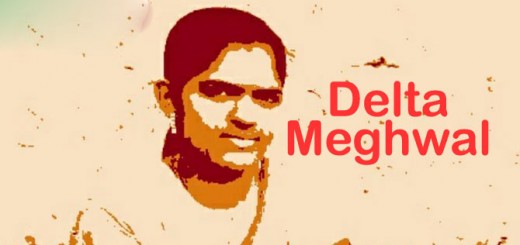
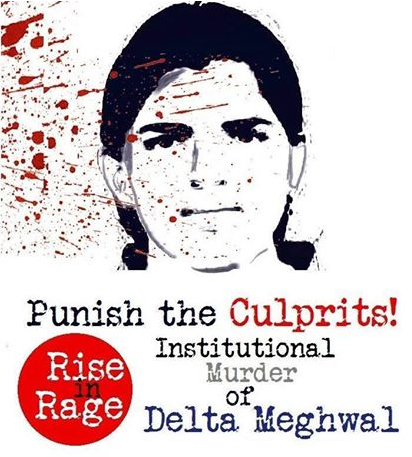

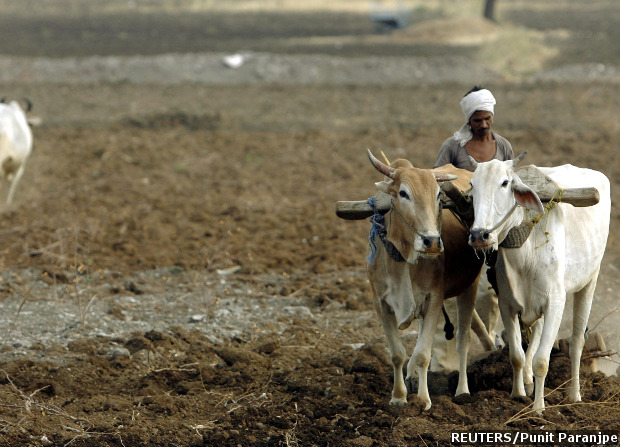

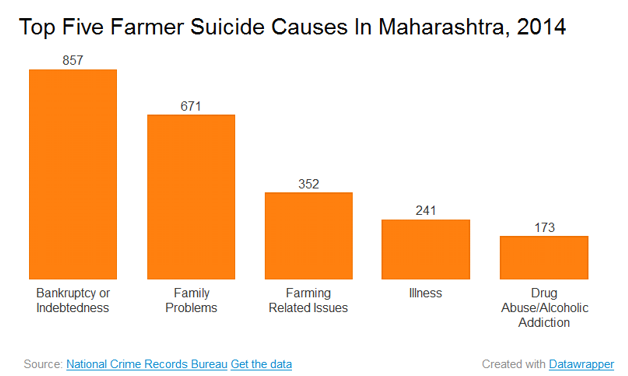
.png)
.png)
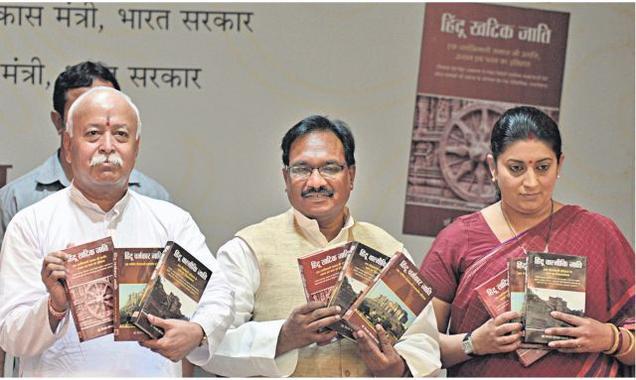

.jpg)
